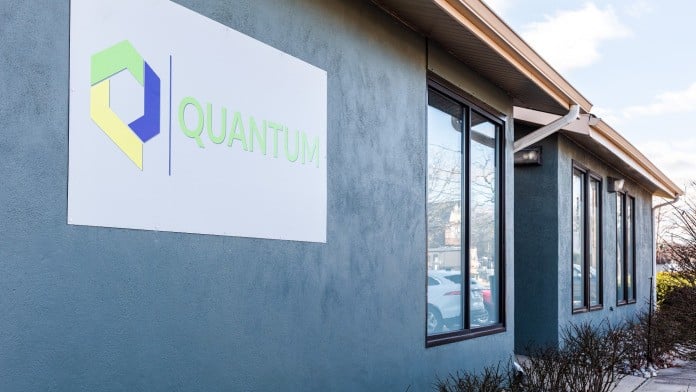Unfortunately, this facility did not provide much of any one on one support as promised. I was not able to work on trauma issues at all. There wasn’t a psychologist on staff as promised and the small individualized groups consisted of 15-34 people. I would not recommend th ...
About Quantum Outpatient Addiction Treatment Center
Quantum Behavioral Health Services is a comprehensive treatment provider for people with substance use disorders. We provide partial care, intensive outpatient, and outpatient support in a welcoming, secure environment that offers an array of treatment options.
We believe that connecting with our clients allows us a better opportunity to help them heal as they need to in order to sustain recovery.
We know that you are someone, that you can be the person you want to be again, that you’re here for a reason, and we care.
And we do not simply say that. We prove it daily.
Our patients aren’t a number. By design, we aren’t a massive corporation, where you could get lost as just another spoke in the wheel. We’re a smaller facility and that allows us to get to know each patient individually, to know their families, and to understand the multifaceted reasons for their substance use so that we can help them heal.
We offer our clients everything under the sun when it comes to treatment and healing modalities. From yoga to meditation to counseling, to art and music therapy and traditional therapy approaches, we assess our clients and tailor a set of treatment approaches to their needs and goals.
We know that this whole-person approach to treatment is the surest way to support our patients and their families.
Quantum Behavioral Health Services recognizes that many forms of addiction are now reaching epidemic levels. We welcome Clients who are ready to recognize the difficulty of facing such issues alone. We are ready to provide each client with the tailored support and the nurturing, healthy environment that will allow them to focus on all aspects of being well and staying well. From their physical health and nutrition to their mental outlook, support systems, and planning for the future we’re here to help clients transform their lives.
Our process takes a mental, physical, and environmental approach to helping each person reach their goal of rebalancing and restoration. We take a clinically-centered approach by making healthy choices in every area of daily life – so that every client finds their new way of living.
Rehab Score
Gallery
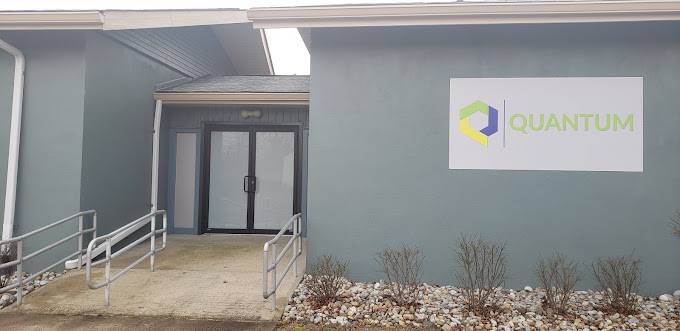

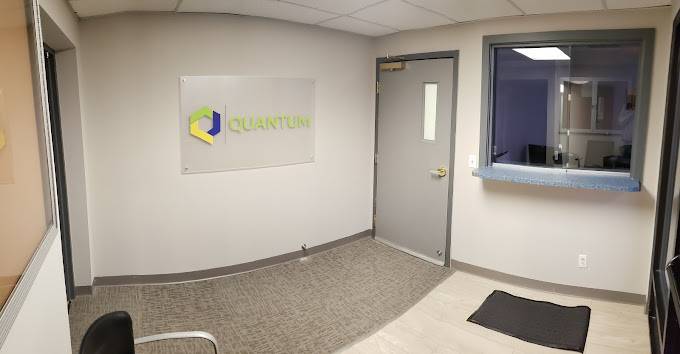
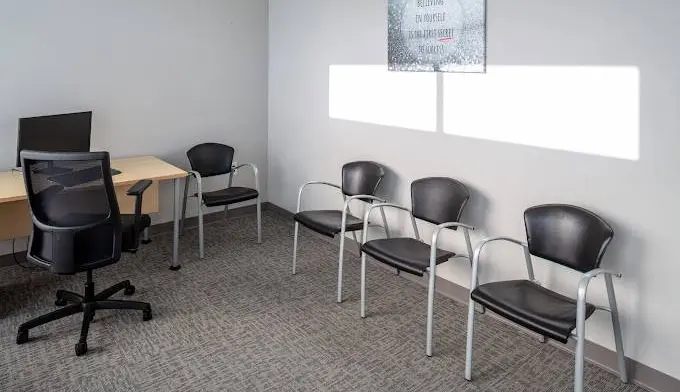
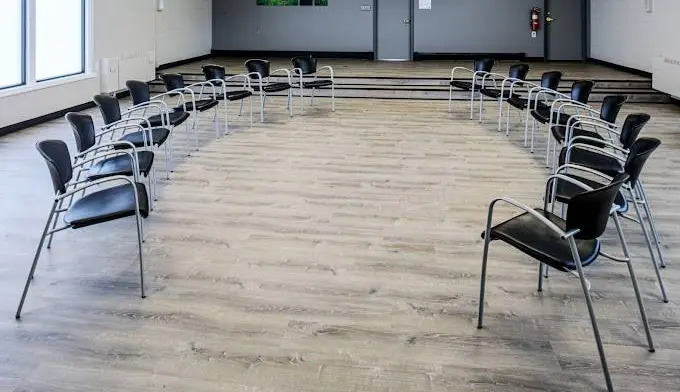
Location
Other Forms of Payment
Private insurance refers to any kind of healthcare coverage that isn't from the state or federal government. This includes individual and family plans offered by an employer or purchased from the Insurance Marketplace. Every plan will have different requirements and out of pocket costs so be sure to get the full details before you start treatment.
Self-pay involves paying for treatment out of your own pocket. You can use savings or credit, get a personal loan, or receive help from family and friends to fund your treatment. If you don't have insurance or your insurance plan doesn't cover a specific program, self-pay can help ensure you still get the care you need.
Addiction Treatments
Levels of Care
Treatments
Many of those suffering from addiction also suffer from mental or emotional illnesses like schizophrenia, bipolar disorder, depression, or anxiety disorders. Rehab and other substance abuse facilities treating those with a dual diagnosis or co-occurring disorder administer psychiatric treatment to address the person's mental health issue in addition to drug and alcohol rehabilitation.
Substance rehabs focus on helping individuals recover from substance abuse, including alcohol and drug addiction (both illegal and prescription drugs). They often include the opportunity to engage in both individual as well as group therapy.
Programs


Clinical Services
Cognitive behavioral therapy (CBT) in New Jersey typically follows a set structure of treatment. The therapist helps clients identify their life challenges and their thoughts surrounding those challenges. The client then learns to identify unhealthy thought patterns and reshape those into healthy patterns of thinking and behavior.
Dialectical means opposing. The premise of dialectical behavior therapy is to learn how two things that seem to be opposite can actually be true. You learn how to accept yourself while also making changes. The focus is on accepting your emotions and changing how you manage them.
Group therapy settings offer you a diverse perspective on addiction and recovery. People from a variety of backgrounds gather together to discuss their challenges and speak openly and in a nonjudgmental atmosphere. This enriches your experience and your understanding of addiction and recovery.
In individual therapy, a patient meets one-on-one with a trained psychologist or counselor. Therapy is a pivotal part of effective substance abuse treatment, as it often covers root causes of addiction, including challenges faced by the patient in their social, family, and work/school life.
Motivational interviewing helps clients find their motivation to change. It can be an effective method to work with clients who are angry or hostile or feel insecure about their ability to make changes in their lives. It is often used during addiction treatment or to manage physical health conditions.
Trauma therapy addresses traumatic incidents from a client's past that are likely affecting their present-day experience. Trauma is often one of the primary triggers and potential causes of addiction, and can stem from child sexual abuse, domestic violence, having a parent with a mental illness, losing one or both parents at a young age, teenage or adult sexual assault, or any number of other factors. The purpose of trauma therapy is to allow a patient to process trauma and move through and past it, with the help of trained and compassionate mental health professionals.
Most experts in couples therapy are trained in several modes of treatment. This allows your therapist to draw from various techniques to personalize your therapy for your needs. This may include cognitive, emotional, and behavioral methods, which are all designed to help you strengthen your relationship.
Family therapy sessions address addiction related conflicts and other issues between members of the family unit. By strengthening communication and coping skills, as well as creating a nurturing environment, the family can help support their loved one's recovery.
Creativity is inherently healing, and can help those in recovery express thoughts or feelings they might not otherwise be able to. Creative arts therapy can include music, poetry/writing, painting, sculpting, dance, theater, sandplay, and more. Unlike traditional art, the final product matters far less than the experience of creation and expression itself.
Amenities
-
Yoga Studio
-
Residential Setting
-
Private Rooms
Accreditations

State Licenses are permits issued by government agencies that allow rehab organizations to conduct business legally within a certain geographical area. Typically, the kind of program a rehab facility offers, along with its physical location, determines which licenses are required to operate legally.
State License: New Jersey

The Joint Commission, formerly known as JCAHO, is a nonprofit organization that accredits rehab organizations and programs. Founded in 1951, the Joint Commision's mission is to improve the quality of patient care and demonstrating the quality of patient care.
Joint Commission Accreditation: Yes

The National Association of Addiction Treatment Providers (NAATP) is a professional association that represents organizations in the field of addiction services. Founded in 1978, NAATP's mission is to advance addiction services and ensure that high-quality addiction treatment is available and accessible.
NAATP Member: Yes

LegitScript has reviewed Quantum Outpatient Addiction Treatment Center as part of their certification program, and has determined that it meets the LegitScript standards for legality, safety and transparency.
LegitScript verified in
